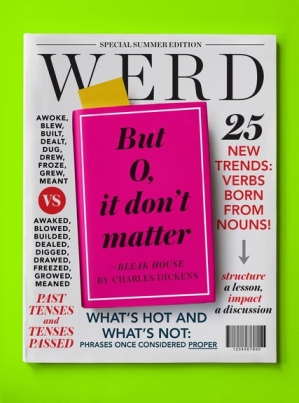- HOME
- INTRO TO THE FORUM
- USE AND MISUSE
- BADLY WRITTEN, BADLY SPOKEN
- GETTING
TO KNOW ENGLISH - PREPARING FOR ENGLISH PROFICIENCY TESTS
- GOING DEEPER INTO ENGLISH
- YOU ASKED ME THIS QUESTION
- ADVOCACIES
- EDUCATION AND TEACHING FORUM
- ADVICE AND DISSENT
- MY MEDIA ENGLISH WATCH
- STUDENTS' SOUNDING BOARD
- LANGUAGE HUMOR AT ITS FINEST
- THE LOUNGE
- NOTABLE WORKS BY OUR VERY OWN
- ESSAYS BY JOSE CARILLO
- A Unified Approach To The Proper Use Of Punctuation In English - II
- A Unified Approach To The Proper Use Of Punctuation In English - III
- Steeling Ourselves Against Common Subject-Verb Disagreement Pitfalls
- The Appropriate Way To Position Subordinate Clauses And Phrases
- Please Don’t Wish Me ‘More Power!’
- Let’s Say Goodbye To Those Irritating English Clichés
- ABOUT JOSE CARILLO
- READINGS ABOUT LANGUAGE
- TIME OUT FROM ENGLISH GRAMMAR
- NEWS AND COMMENTARY
- BOOKSHOP
- ARCHIVES
Click here to recommend us!
ADVICE AND DISSENT
This section features discussions on education, learning and teaching, and language with particular focus on English. The primary subjects to be taken up here are notable advocacies and contrary viewpoints in these disciplines and their allied fields. Our primary aim is to clarify matters and issues of importance to language and learning, provide intelligent and useful instruction, promote rational and critical thinking, and enhance the individual’s overall capacity for discernment.
What’s deemed as proper English really only a matter of fashion
In “A Matter of Fashion,” an essay he wrote for the July 9, 2012 issue of The New York Times, American linguist and Columbia University professor John McWhorter argues that because English—like any other language—changes and has always changed over time, it’s wrong to designate any kind of English “proper” and other kinds “bad English.” To those who insist that all people must know which forms of language are acceptable in the public sphere or else risk being unemployed or being socially handicapped, McWhorter proposes a middle ground: “We can teach people which forms of English are acceptable without thinking of the more colloquial phrases and words as errors. Rather, what is considered proper English is, like so much else, a matter of fashion.”

SABINE DOWEK: THE NEW YORK TIMES
McWhorter then takes a quick look at what was considered proper English at various times in its history, from Old English to the English of Charles Dickens all the way to Jane Austen’s in the 19th century and to Edith Wharton’s in the 20th century. “Certain expressions that were considered mistakes unworthy of polite company then seem utterly normal today,” McWhorter observes. “It’s almost funny how arbitrary these things seem from our vantage point.”
He says about rabid objections to present-day changes in English: “Today, we have our own fads. We’re more likely to hear about using nouns as verbs – structure a lesson, impact a discussion – or making new verbs from nouns, such as liaise. Yet the verbs “copy,” “view,” “worship” and “silence” were born from nouns to no complaint. The fashion simply hadn’t yet arisen to condemn them.”
Read John McWhorter’s “A Matter of Fashion” in The New York Times now!
Click to read responses or post a response
View the complete list of postings in this section
(requires registration to view & post)





